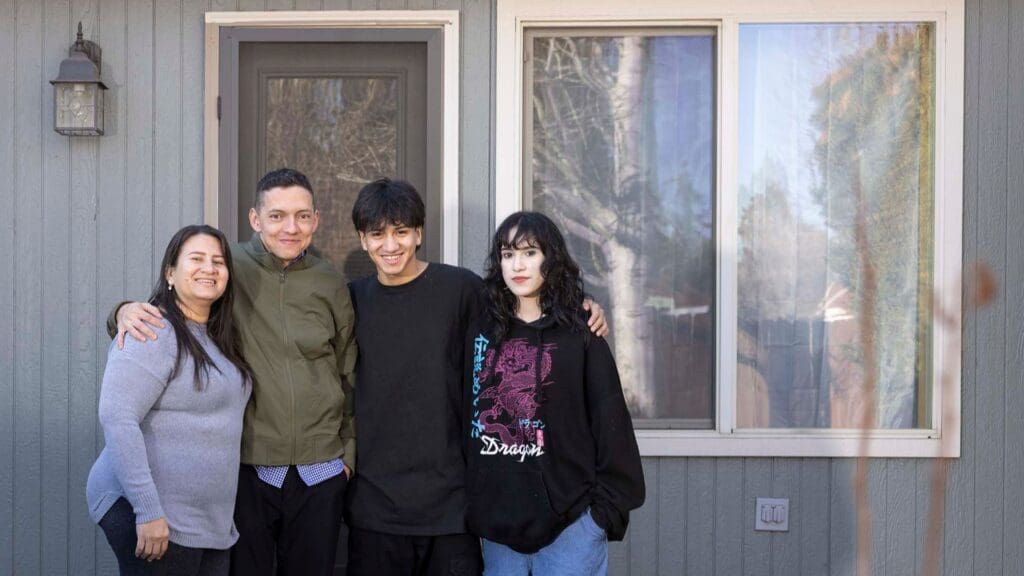
Antioch sponsors had the will — the Welcome Corps offered a way
Once facing a “living hell” in Colombia, Maria del Carmen Chaparro said it “felt like we were being received by a group of angels,” when they resettled to Bend, Ore., through the Welcome Corps program in December 2023.
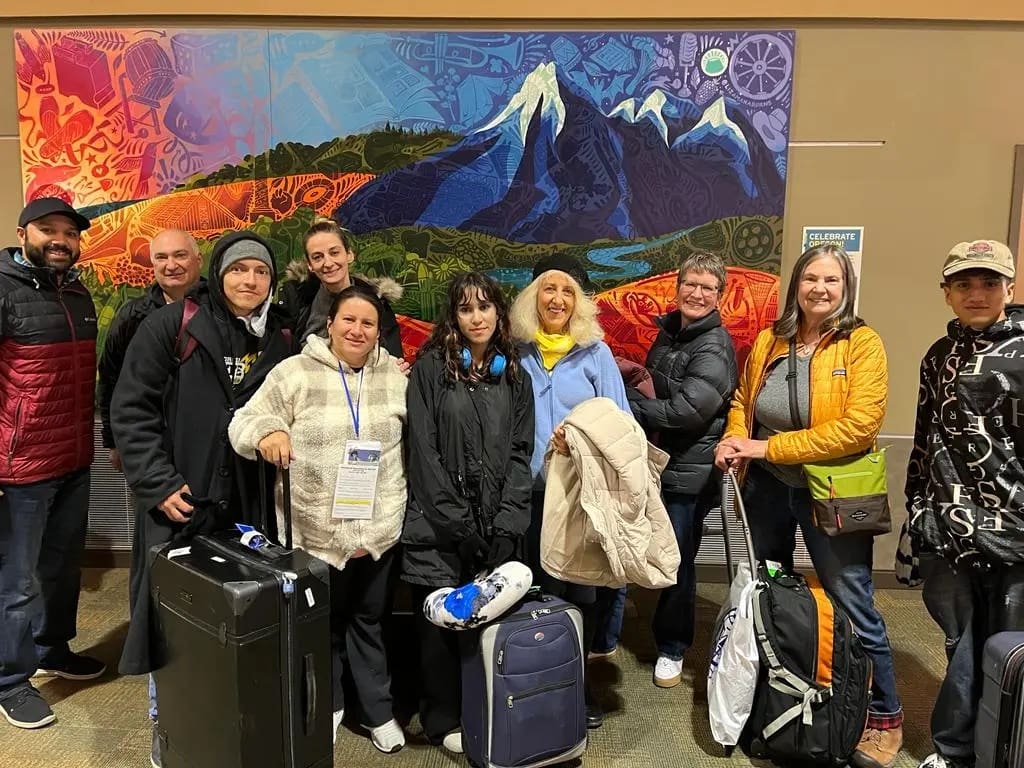
Fleeing relentless threats by an illegal military group for years, the family of five left their home and belongings behind, first moving several times within Colombia and then relocating to refugee camps in Ecuador.
The Welcome Corps offered Jhon, Maria, and two of their adult children hope, safety, and a new beginning in the United States. And members of the Antioch Welcome Corps Sponsor Group were just as excited to welcome the family to Oregon as the family was to start a new chapter of their lives.
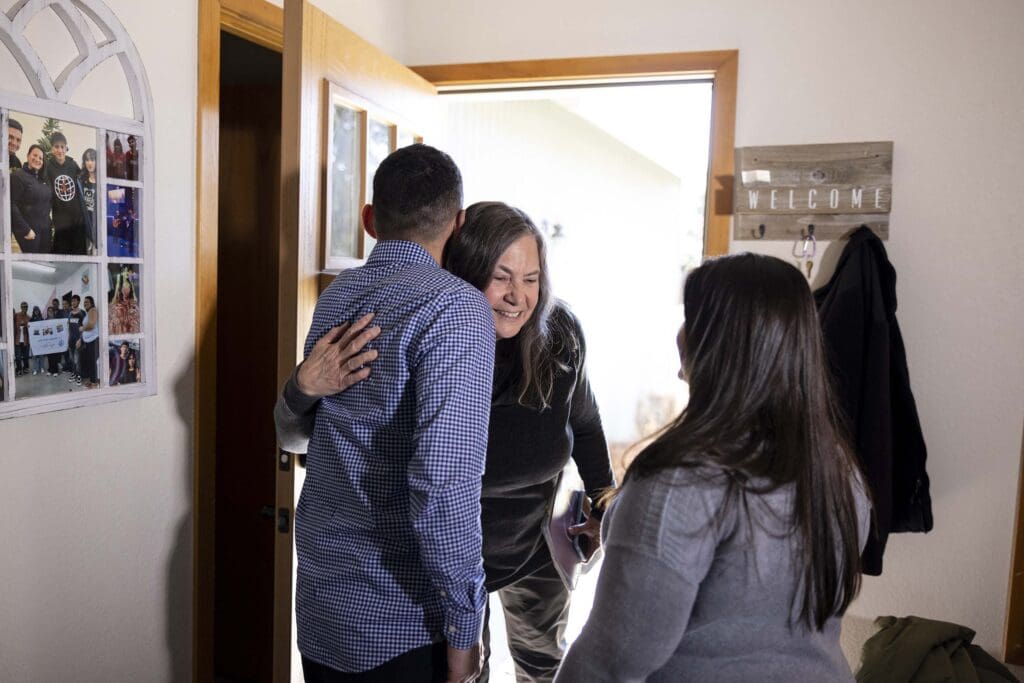
“Living in Bend, Ore., we aren’t near any type of refugee resettlement organization. We’re a smaller town, about 100,000 people, and so I was really intrigued that this would be an opportunity for our church community to be a part of refugee resettlement,” said Amy Kasari, a member of the sponsor group.
“There was no doubt—ever—in our church’s mind that this was something we wanted to do. We just never had the opportunity before.”
Amy first heard about the Welcome Corps program on a NPR broadcast. She reached out to members of the congregation at Antioch Church to ask if anyone would be interested in forming a private sponsor group. A mix of members from the community, all passionate about welcoming refugees to Bend, responded to her inquiry. The group—all members of Antioch Church—included a science writer, a nurse, a realtor, and a teacher, as well as several members who speak Spanish.
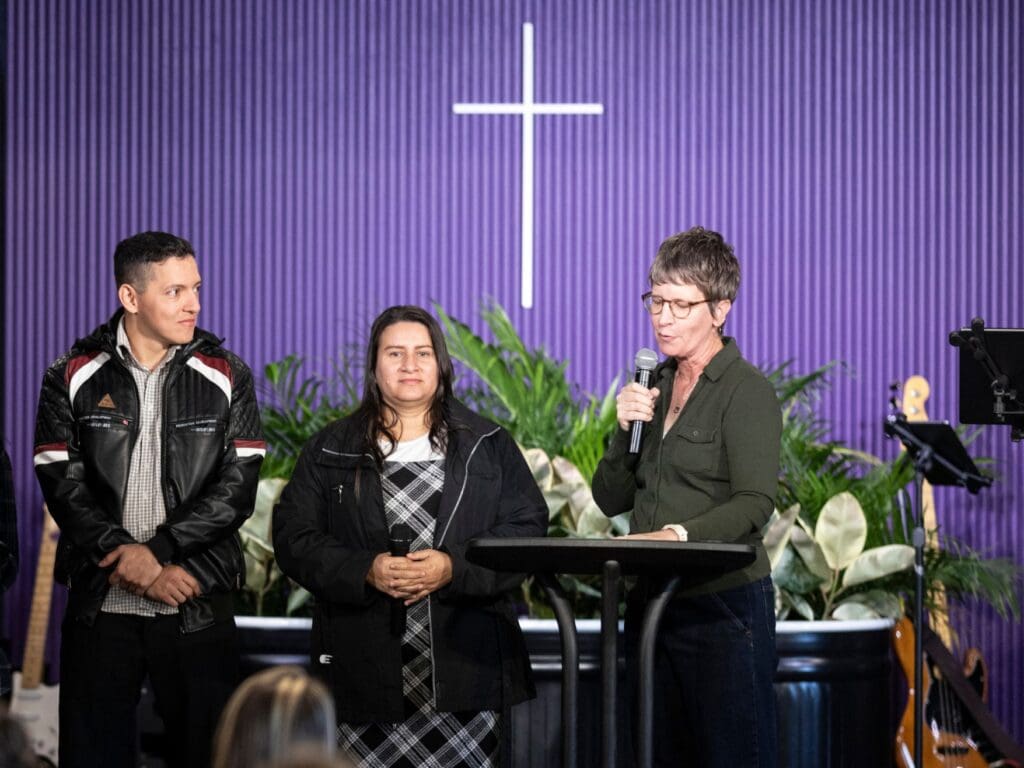
Janet, who is the group’s team lead, was a staff member for the federal food assistance program for women and children for 30 years and shared her expertise in government and public health. Now retired, she wanted to dedicate her time to an important cause. “We want to change the narrative about how people perceive Christians in some of these topics like immigration,” she said. “Our tagline is the reconciliation of all things and being a welcoming church to strangers.”
As the group prepared to welcome the family, they worked closely with a program officer at the International Rescue Committee (IRC). The support from IRC, the group’s private sponsor organization, has been critical in building up their confidence, Amy said.
“We don’t feel at all like we’re just alone in this and we’re figuring it out on our own. There have been a ton of suggestions and, all the way down to a grocery list for when the family arrives, these are items you should have, and we’re not having to figure those kinds of things out all by ourselves in a vacuum,” she said. “There are a ton of resources that we’re able to tap into.”
Initial concerns about housing, fundraising, or the potential language barrier were addressed by IRC staff members, “impressive” training offered through the Welcome Corps, and support from the community. Through connections with local businesses, the group was able to fundraise beyond their church community. They are also working closely with the Latino Community Association, which supports immigrants and refugees as they resettle in central Oregon.
Months of preparation by the sponsor group and the family finally led to an emotional greeting at the airport where Janet and Amy welcomed Jhon, Maria, and two of their adult children.
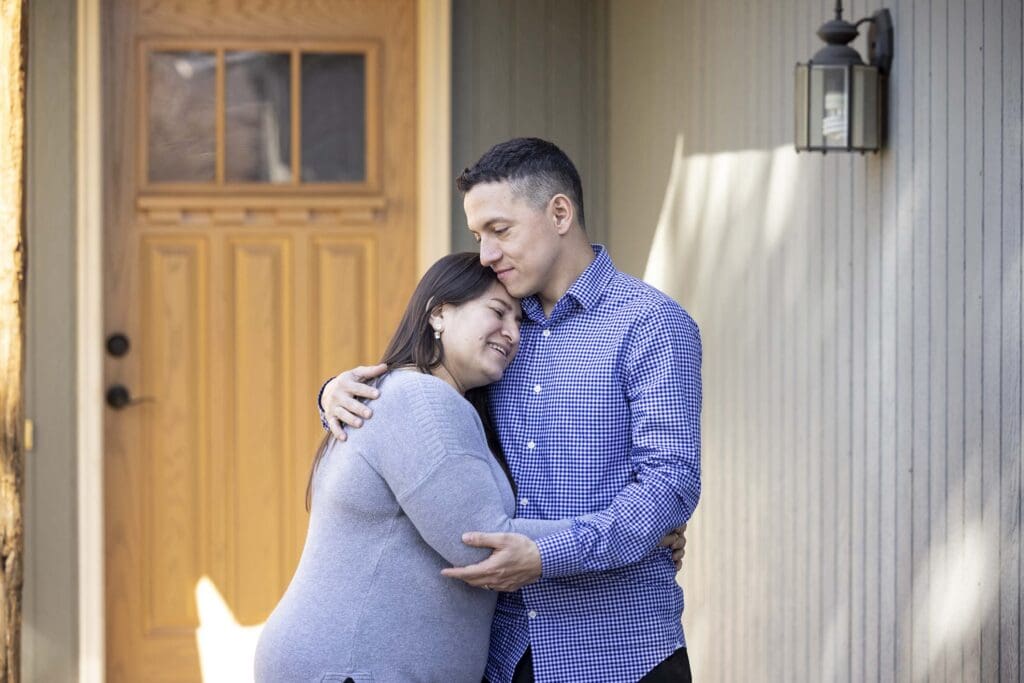
There are really no words to describe the happiness and joy that we felt when we arrived in Oregon. Looking at this group of people welcoming us, offering us a new life. We were, of course, crying. Everyone was crying.
—Jhon and Maria, Colombian refugees
“The people receiving us were crying because of all the emotions. And we felt like we were being received by a group of angels. They told us ‘You’re not going to suffer any more harm. You are welcome here. You are going to have a good life here’,” Jhon and Maria shared.
Happiness and joy are welcome feelings after years of living in constant fear. While working as a community leader in Colombia, Maria witnessed the murder of her step-father. From that moment, her family was targeted by illegal military groups.
“It was a nightmare. It was hell,” Maria said. “We were moving from one town to another town because we were chased. Every five years, we had to move from one place to another without taking anything with us because we just had to rush out. Because we received threats, and we could have been killed, easily.”
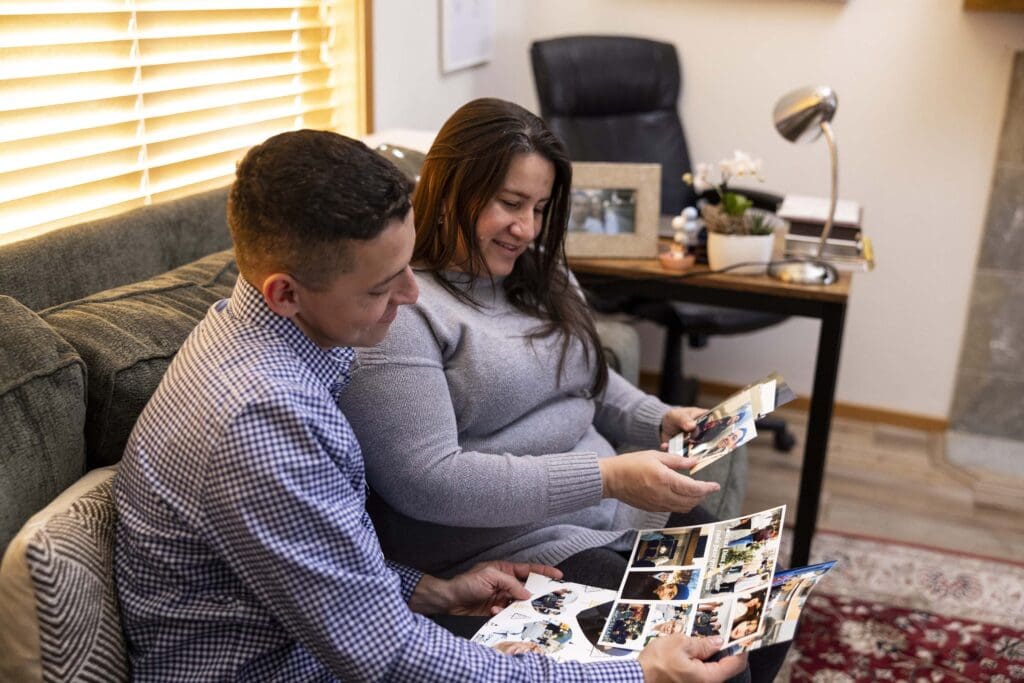
After years of suffering, the family relocated to Ecuador, but their situation did not improve. They moved from one refugee camp to another, often without a plan or hope for their future. Finally, they connected with HIAS, a global refugee support organization, and the organization identified a camp where the family could find shelter.
As the Jhon and Maria waited for details on next steps, they went through multiple rounds of intense interviews with various officials at the camp, reliving the details of their traumatic experiences.
“The interview process was really tough. Very, very difficult because of all the difficult situations we went through, all the killings of relatives, all the threats, all the trauma we went through all these years,” Jhon said.
Eight months later, the family was thrilled to discover where they would be resettled. “We finally heard that we were going to be relocated to the state of Oregon, to the city of Bend. We started checking through Google about the city. We were very, very happy and excited about the city where we were going to be relocated because we noticed that it was a beautiful city where we could live in peace—be calm, be safe,” Jhon said.
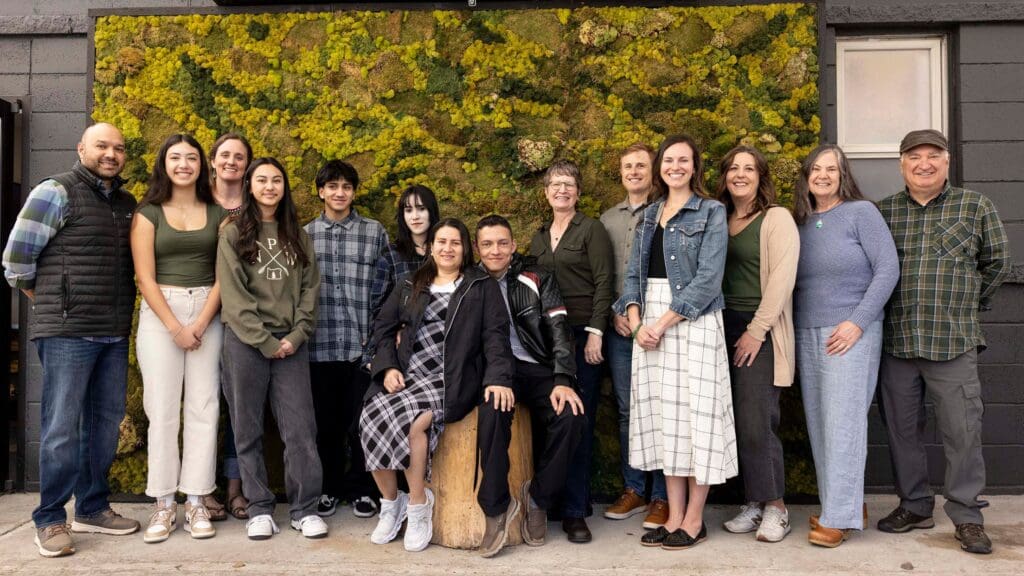
“One of the biggest things that I think our group has learned and continues to learn is when a family is fleeing the kind of violence and danger that our family was fleeing… they are alone in the world,” Amy said. “They have left family [behind]. They have left all creature comforts. They left their dog, they’ve left everything behind. And they are alone in this new country where they know no one, don’t speak the language, don’t know how to navigate.”
Checking off lists and meeting tangible needs were easy, Amy said. Their biggest accomplishment, though, went beyond initial tasks—they developed a long-lasting relationship.
“We weren’t prepared for the kind of friendship and relationship that we would develop, and for realizing that all the tangible needs that we met were great. But what they really have appreciated, and what has really helped them move forward, is community,” Amy said.
When the sponsor group met their 90-day commitment to the family, they planned a special event. About 40 people from the church and community attended a party to mark the moment.
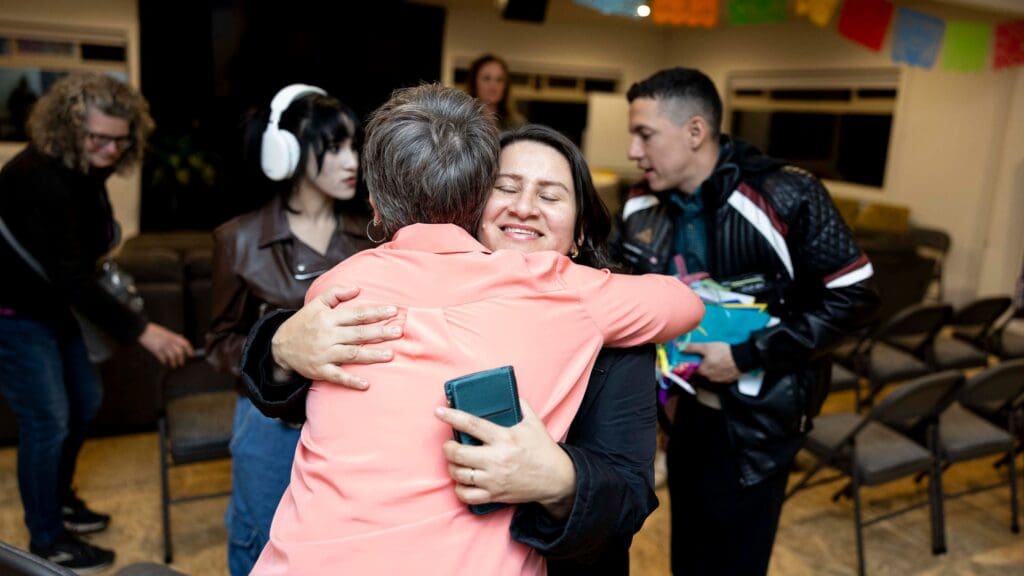
“We invited close to 70 people who had been a part of their journey so far just to celebrate,” Amy said “It was just a time to honor them for the work that they’ve done, and celebrate.”
As Jhon and Maria look to their future, they hope to establish themselves in Bend and to simply live a normal family life. Their biggest hope is to reunite with their oldest son who was not able to leave Ecuador in time. They shared that they are so thankful for all of the support they have received, and that the country welcomed them with open arms.
Despite their dangerous journey, Jhon said they are empowered to share their story: “If there is anything that we could do to help, especially if we will be the mechanism for other people to be freed, to be free again, because there are so, so many people going through what we went through, we’d be glad to help.”